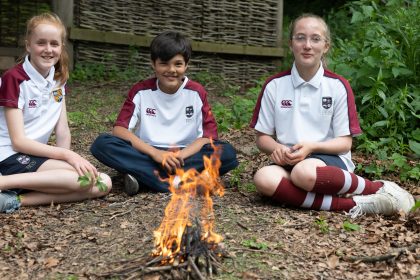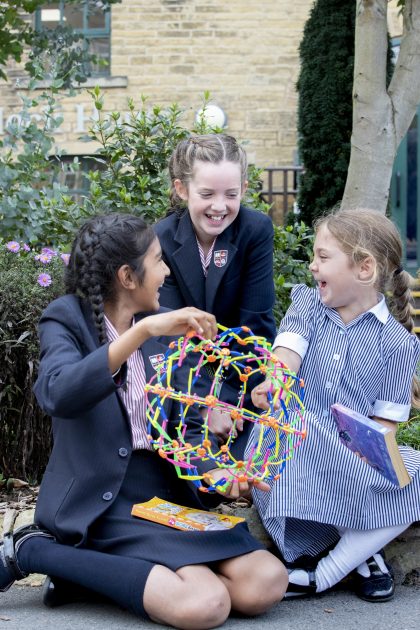Arriving at Clock House in the early morning takes me through our wooded outdoor area, across the lower playground, past our giant outdoor chess set, alongside our Year 4 classrooms and into my office via the school reception. It’s an inspiring way to begin the school day; enjoying the tranquillity of nature and observing the changing seasons. It’s good for the mind and soul.
At this time of year as the snowdrops appear, buds develop and birds begin to explore their vocal range, nature is organising itself for growth.
In the Junior School we give careful attention to curating the best possible environment for our young people to grow. Academic excellence is embedded in the philosophy of BGS, but ingredients and opportunities to develop individual and group potential extend beyond the confines of the classroom.
Evidence from a number of studies promote the educational benefits of being outdoors. Connecting with nature supports our cognitive development, providing opportunities to develop executive function and drawing on children’s natural curiosity to inspire creativity.
Our outdoor space at BGS is used in many ways. We use it to support curriculum learning, for exploration, by our nature club, by our STEM ambassadors, for bushcraft and to run our ever-popular perennial gardening club. Children welcome having the opportunity to learn in different ways and to be creative in their acquisition of knowledge and skills.
Our outdoor spaces are also used to support the health and wellbeing of our pupils. During our recent Children’s Mental Health Week, the children took part in a range of carousel activities, a number of which were held outside. The activities were created around the theme of ‘let’s connect’. Children were organised into mixed age groups and challenges were devised to encourage teamwork and collaboration across the age ranges. The highlight being connecting and communicating with each other while roasting marshmallows in the outdoor classroom!
During a follow up assembly, the children reflected on their experiences and said they particularly enjoyed making connections with children in other year groups. Collaboration is a valuable learning and life skill and developing this across the age ranges in the outdoor environment engages the children.
Overall, we know the effects an outstanding outdoor education can have on our pupils and we’re looking forward to seeing the faces of our new Reception and Year 1 children as they head off to the nature areas in our grounds. We imagine the mud kitchen will be very popular among our youngest pupils (though their parents might not agree!).
“…ingredients and opportunities to develop individual and group potential extend beyond the confines of the classroom.”

